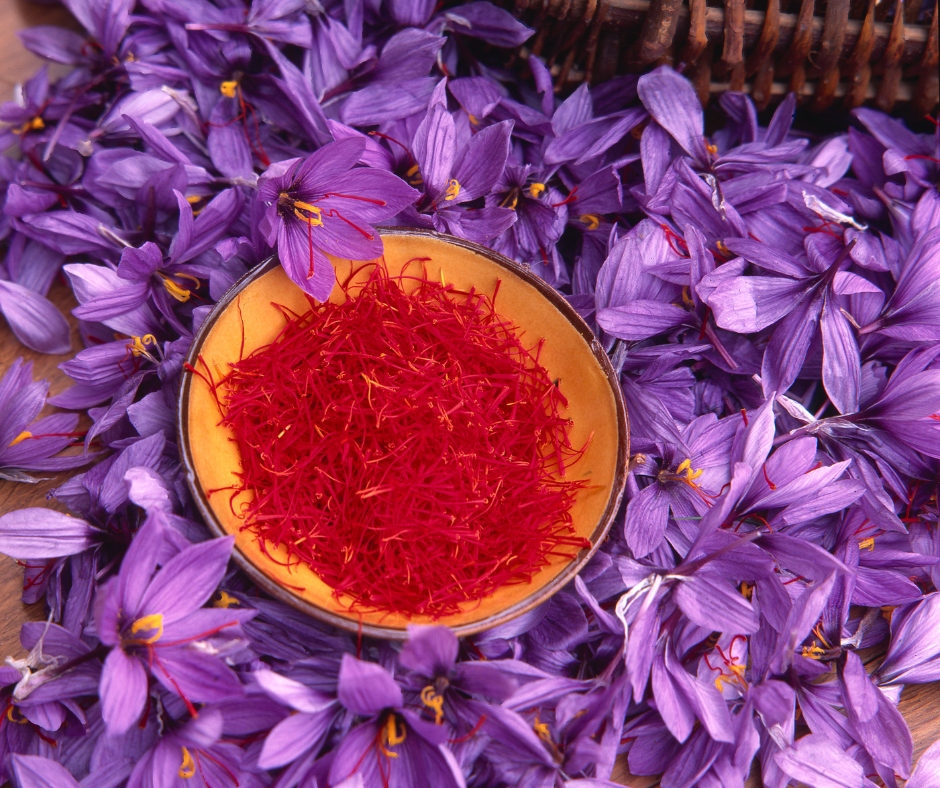#Saffron #MedicinalBenefits #Aroma #Flavor #Spice #Health
Saffron, often referred to as the “King of Spices,” is renowned for its captivating aroma, vibrant hue, and unique flavor-enhancing properties in culinary delights. But this precious spice offers more than just sensory pleasures. It has a rich history of medicinal use, spanning centuries and across various cultures. In this article, we will explore the myriad of medicinal values that saffron possesses, going far beyond its delightful aroma and flavor.
##The Saffron Saga: A Brief Overview
Before diving into its medicinal properties, let’s take a moment to appreciate saffron’s origins and its significance throughout history. Saffron is derived from the stigma of the Crocus sativus flower, making it one of the most labor-intensive spices to harvest. Its use dates back to ancient civilizations, with records of its cultivation and consumption in regions like India, Persia (modern-day Iran), and the Mediterranean dating as far back as 2,000 BC.
#1. Potent Antioxidant Properties
Saffron is a treasure trove of antioxidants, particularly crocin, crocetin, and safranal. These compounds play a vital role in neutralizing harmful free radicals in the body, thereby reducing oxidative stress. Antioxidants are essential in preventing various chronic diseases, including cancer and cardiovascular issues.
#2. Mood Elevation and Stress Reduction
Incorporating saffron into your diet can have a profound impact on your mood. Research suggests that saffron may be as effective as some antidepressant medications in managing mild to moderate depression. It is believed to enhance the production of serotonin, a neurotransmitter associated with feelings of well-being and happiness.
#3. A Natural Remedy for Insomnia
Saffron’s soothing properties extend to aiding sleep. Drinking saffron-infused tea before bedtime can promote relaxation and improve sleep quality, making it a valuable ally for those struggling with insomnia or irregular sleep patterns.
#4. Anti-Inflammatory Effects
Chronic inflammation is at the root of many diseases, from arthritis to heart disease. Saffron contains anti-inflammatory compounds that can help mitigate inflammation and its associated health risks. Regular consumption may reduce symptoms in inflammatory conditions.
#5. Enhancing Cognitive Function
Saffron is believed to have cognitive-enhancing properties. Its bioactive compounds may protect brain cells from oxidative stress, potentially slowing down age-related cognitive decline and reducing the risk of neurodegenerative diseases like Alzheimer’s.
#6. Regulating Blood Sugar Levels
For individuals with diabetes or those at risk, saffron can be an invaluable addition to their dietary choices. Studies suggest that saffron can help stabilize blood sugar levels by improving insulin sensitivity, making it a potential aid in diabetes management.
#7. Aiding Digestion
Saffron has been traditionally used to ease digestive discomfort. It can help alleviate symptoms like bloating, gas, and indigestion. Incorporating saffron into your meals or consuming saffron-infused teas may promote digestive health.
#8. Promoting Cardiovascular Health
Saffron’s potential cardiovascular benefits include reducing blood pressure, improving cholesterol levels, and protecting against atherosclerosis. These effects contribute to a lower risk of heart disease, one of the leading causes of mortality worldwide.
#9. Anti-Cancer Properties
Emerging research suggests that saffron may possess anti-cancer properties. Compounds in saffron, such as crocetin and crocin, have shown promising results in inhibiting the growth of cancer cells and inducing apoptosis (cell death) in various types of cancer.
#10. Women’s Health
Saffron is often used to alleviate symptoms associated with menstruation and menopause. It can help reduce the severity of cramps, mood swings, and hot flashes, providing comfort to many women during these stages of life.
##Incorporating Saffron into Your Routine
Harnessing saffron’s medicinal value isn’t limited to exotic recipes or costly supplements. You can enjoy its benefits in your daily life through:
- Saffron Tea: Brew saffron threads in hot water to make a soothing tea.
- Saffron-Infused Oil: Use it for massages to relieve stress and tension.
- Culinary Delights: Enhance your dishes with saffron’s exquisite flavor and medicinal benefits.
- Supplements: Consult with a healthcare professional before taking saffron supplements.
#Closing Thoughts
Saffron’s role in enhancing the flavor and aroma of dishes is undoubtedly its most celebrated aspect. However, as we’ve explored, its medicinal virtues are equally remarkable. From its antioxidant prowess to its potential in managing mood disorders, saffron is more than a spice; it’s a holistic health ally.
As you savor the tantalizing aroma and exquisite flavor of saffron in your next meal, take a moment to appreciate the golden treasure that lies within – a spice that not only pleases the palate but also nourishes the body and mind.
So, the next time you sprinkle saffron onto your rice or sip saffron-infused tea, remember that you’re not just indulging in culinary luxury; you’re also embracing the centuries-old wisdom of saffron’s medicinal magic.
#SaffronGold #SpiceForHealth #SaffronMagic #WellnessWithSaffron
